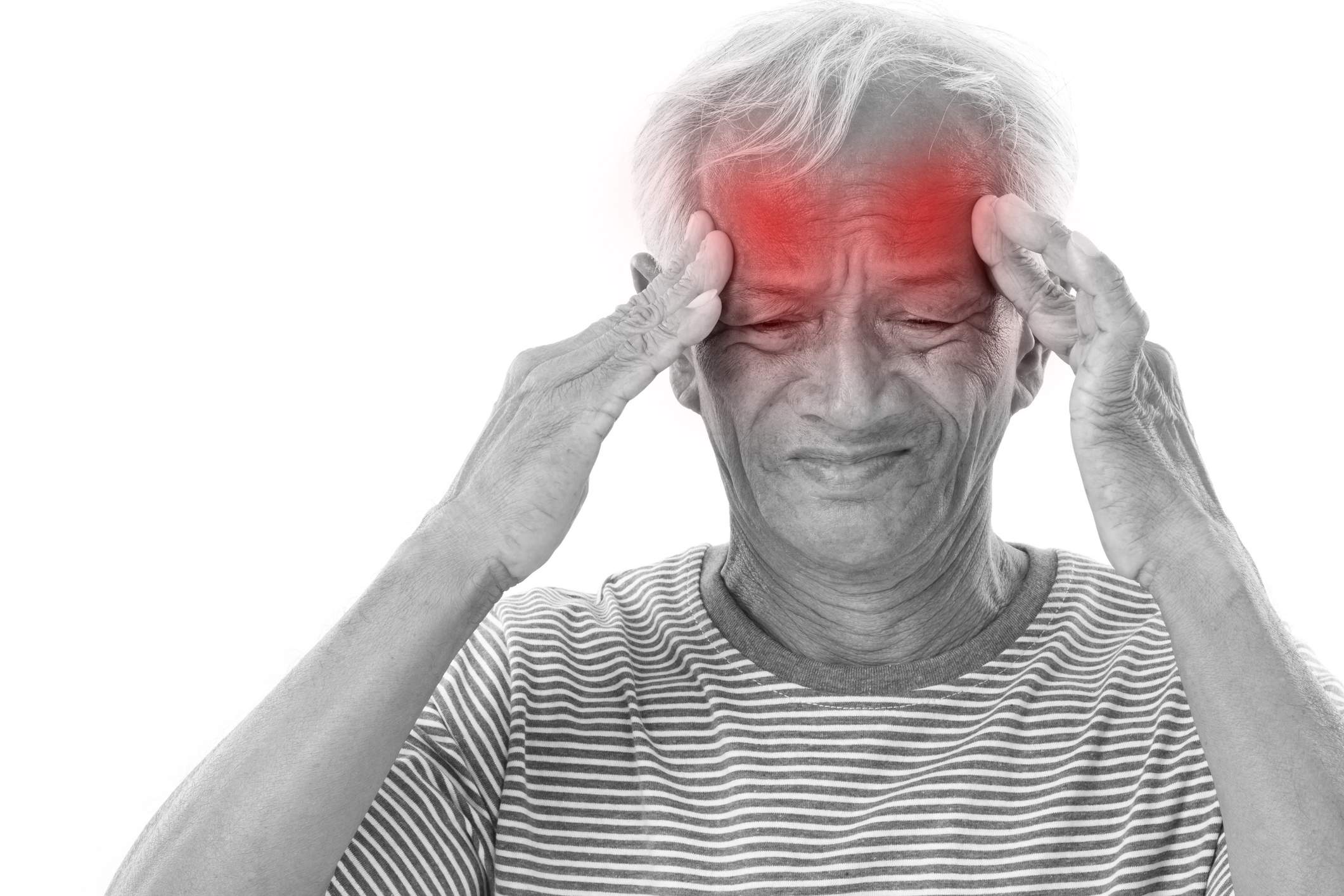Getting ahead on headaches
By Jay Nachman
While headaches can occur in people of any age, they usually start earlier in life. However, doctors don’t know what causes headaches, according to Dr. Michael J. Marmura, the director of outpatient operations at the Jefferson Headache Center and co-chief of the Division of Headache.
Headache disorders, like migraines, usually run in families, but there are many other factors in the environment that aren’t fully understood. In some cases, like with caffeine withdrawal, there is a clear cause for a headache. But in most cases, there’s no obvious reason for headache to start.
If someone has an occasional tension headache, or even a severe headache, and it can be eased with over-the-counter medication, there is no need to see a doctor. However, if someone age 50 or older is having constant life-disrupting headaches, that person should see a doctor.
“When we see someone who is over 50 with a new onset of a headache, we’re more suspicious to make sure that there is not some other cause that we’re missing,” Marmura said. “We make sure to investigate for other causes which can include high blood pressure, neck problems, and headaches after a trauma or stroke.”
Migraines
A severe headache episode is known as a migraine. Most people with migraines have at least moderate or severe pain, which is often throbbing or pulsing. There can also be light and noise sensitivity, as well as nausea. A migraine is much more likely to cause disability or problems with functioning, compared to a regular headache, Marmura said.
For people with migraines that can’t be helped with over-the-counter medicines, including acetaminophen, naproxen sodium or ibuprofen, doctors can prescribe effective prescription medications.
The prescription medicines used for migraines are not addictive and offer many good options, even for people with serious medical problems. “In some cases, over-the-counter medicines, such as ibuprofen, cause more harm than prescription medications, when used too often,” Marmura said. “I think it’s important to realize that prescription medicines aren’t necessarily more dangerous.”
It is important for people having frequent headaches to bring it up early in conversations with their primary doctor. “In many cases, when people see their primary care doctor, headaches are the last thing that gets discussed,” Marmura said. “They’ll first talk about your blood pressure, blood sugar, weight and depression. Don’t wait to bring it up until the end of the visit, after you’ve discussed everything else. Frequent headaches, especially migraines, are worth discussing to make sure you have the correct diagnosis and effective treatment.”
Doctors are coming up with a better understanding of what causes headaches and migraines. For example, they are learning how lack of sleep can affect migraines. With more research, the current treatment of using trial-and-error to treat headaches will give way to a more personalized approach. Marmura said: “In the near future, we’ll use testing to assist with our diagnosis and select the best treatment based on those results.”
Headache relief tips
Mayo Clinic Health System offers the following tips to help lessen headache intensity or frequency. As a bonus, these tips also help other health conditions, including heart disease, depression, Type 2 diabetes and high blood pressure.
Talk with your primary care provider if your headaches occur a few times per week, are debilitating, last more than one day, or interfere with your daily activities.
Exercise regularly
This natural stress reliever also releases feel-good endorphins that block pain signals to the brain. Aim for 30 minutes of moderate exercise at least five days a week or 150 total minutes per week for the full benefit.
Eat healthy
Some over-the-counter headache medications include caffeine, and a small amount can help stop your headache. However, heavy caffeine use raises your blood pressure and can trigger a headache. Up to 400 milligrams of caffeine per day is considered safe for most adults. If you drink coffee or tea, aim for one cup a day.
Specific foods may trigger a headache. Some common foods to eliminate include processed foods, chocolate, aged cheeses, processed meats, high-sugar foods and gluten. Moving away from processed foods to whole, fresh foods can greatly reduce or eliminate headaches.
Avoid substances
It’s no secret that alcohol, tobacco and drugs, like cocaine and fentanyl, affect the brain. Many people who have chronic headaches or migraines are sensitive to alcohol. Limit your alcohol intake to one drink a day for women or two drinks a day for men. If you smoke, quit.
Get enough sleep
Sleep is essential to well-being, and getting an adequate amount can help reduce headaches. Avoid over-or under-sleeping, as this can trigger migraines. If you’ve been told that you snore, talk to your health care provider about sleep apnea, which also can trigger headaches.
Relax and recharge
Stress can make your head hurt, so find something you enjoy doing that reduces stress and gets your creative juices going. Make time to take care of yourself, whether going out or staying home.
Jay Nachman is a freelance writer in Philadelphia who tells stories for a variety of clients.




